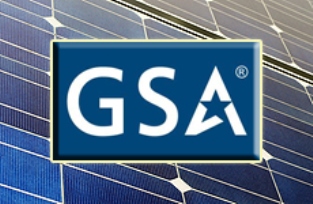
GSA, State Department turn to requirements to make acquisition sustainable
Following White House guidance, government agencies look at ways to add sustainability to contracting.
A plan for sustainable purchasing developed by the U.S. Embassy staff in Rome has become a model for use throughout the State Department.
The plan seeks vendors with eco-friendly certifications, low emissions and low waste disposal or recycling plans.
“They developed a standard operating procedure that we are now going to roll out as a best practice policy across the department said Michael Derrios, State’s acquisition and procurement executive. “They’ve created a little matrix that they’re going to use to really vet all the requirements that are coming out of that shop.”
Derrios spoke at a Leadership Connect webinar.
The move to sustainable acquisition comes after a December 2021 White House executive order to establish federal government as a leader in sustainability. Most federal agencies have ways to go to incorporate sustainability in acquisition.
The General Services Administration has made the chief sustainability officer or his designee a mandatory invitee to all acquisition review boards.
“We issued our policy changes to require that sustainability be much more formally analyzed and considered in acquisition strategy documents,” said Jeffrey Koses, a senior procurement executive at GSA. “We started encouraging the workforce to think about sustainability at each phase of the acquisition lifecycle…as part of a best value determination.”
At the State Department, promoting environmental policy means figuring out new contract wording and assigning specific values for a product’s or vendor’s impact on the environment.
“We’re playing around with some language right now,” Derrios said. And also trying to figure out how to place a little bit more weight on the sustainable product or service.”
He said the department is adding guidelines for reducing use of single-use plastics in some of its overseas indefinite-delivery, indefinite quantity (IDIQ) contracts. Specifications for sustainable products will be inserted into the requirements of other contracts.
He said State is also looking to reduce delivery of disposable knives, forks and spoons in regional food service contracts.
“There’s no reason that we have to be relying on plastic in our cafeterias”, Derrios said.
The department will investigate using solar power at some of its overseas installations. Derrios said the department can use power purchases to contract with third-party developers who own the equipment and can use it to provide power to specific properties.
“It’s [the vendor’s] system, they own it, they operate it,” Derrios said. “In exchange we’re getting an off-site on our utility bills.” The vendor is free to sell excess power it generates.
As different agencies experiment with new rules, Koses said getting feedback from industry will play a critical role. The GSA recently put out a draft proposal with a self-scoring model for greenhouse gases in its Oasis and Alliant 3 solicitations. Roughly 3% of potential points count towards self-disclosure. But the proposal drew mixed reactions.
“We got a lot of feedback, a lot of reaction,” the GSA’s Koses said. “Some folks thought it was a fabulous idea, some folks thought it was not such a fabulous idea. They thought we need to think about it differently.
Copyright © 2025 Federal News Network. All rights reserved. This website is not intended for users located within the European Economic Area.
Alexandra Lohr, a former staff member, covered the Defense Department for Federal News Network until September 2023.






